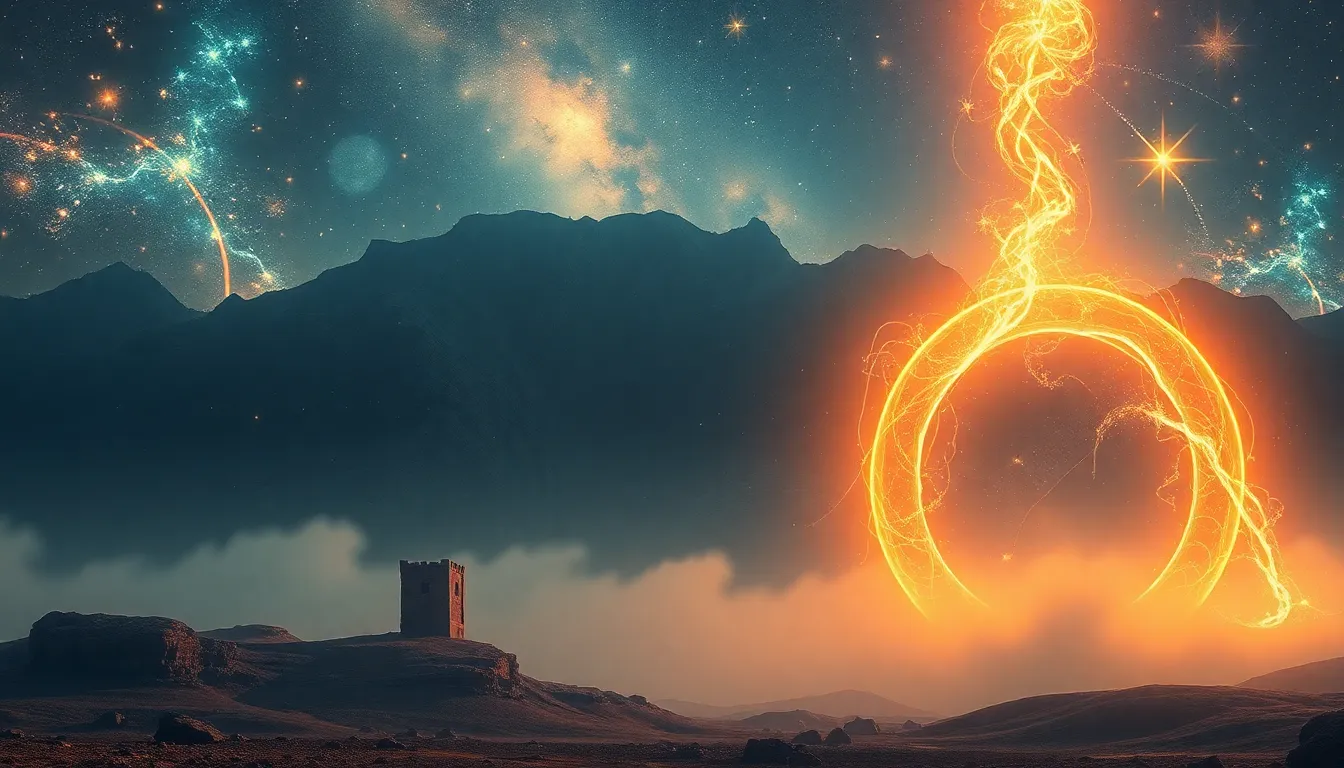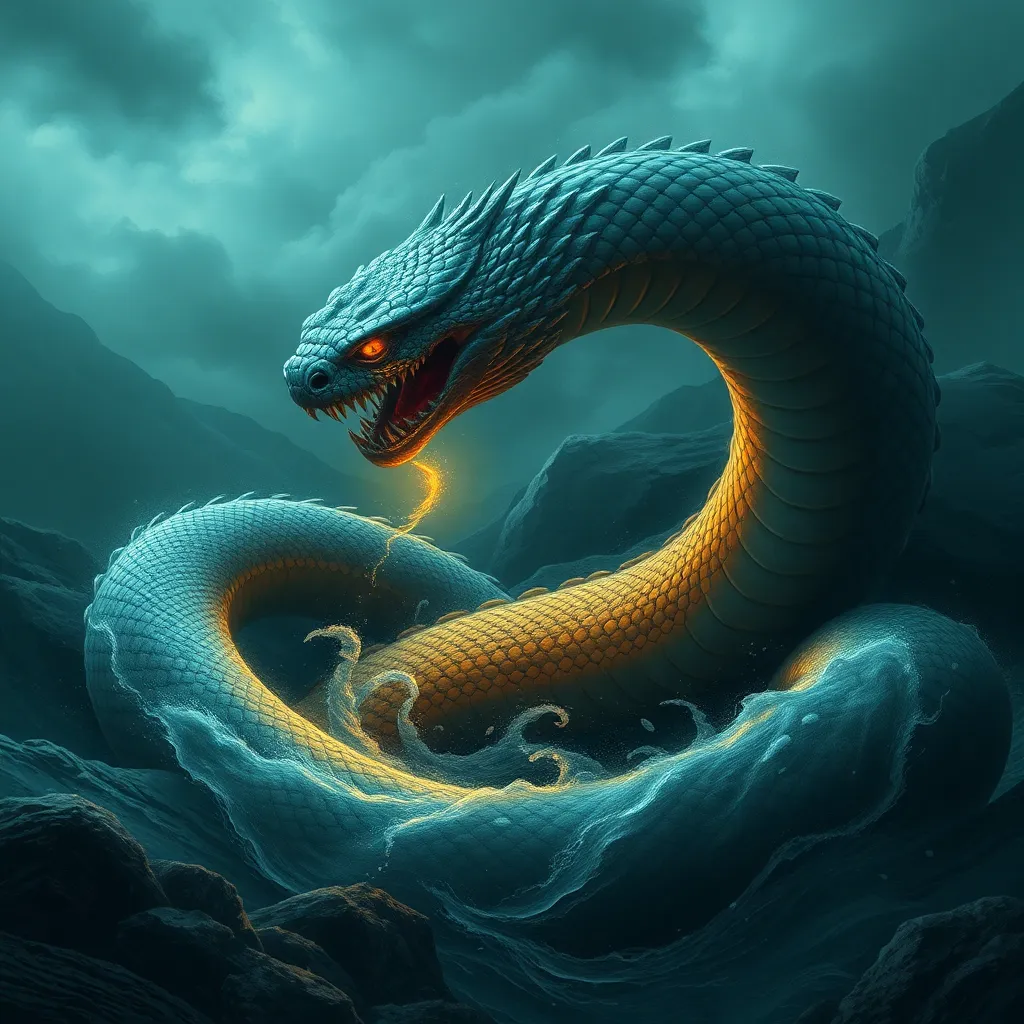The Great Cosmic Story: How Myths Explain Our Existence
Introduction to the Cosmic Story
The Great Cosmic Story is a narrative that encompasses the origins, purpose, and ultimate fate of the universe, as well as the human place within it. It seeks to weave together the threads of existence, drawing from various sources, including scientific inquiry and mythological tradition. Myths serve as powerful tools for understanding our existence; they provide frameworks through which we can make sense of the complexities of life, death, and everything in between.
This article explores the significance of myths, their role in human culture, and how they articulate our deepest questions about existence. We will examine creation myths, the archetypal hero’s journey, the balance of chaos and order, and the implications of apocalyptic narratives. Finally, we will discuss the relevance of these myths in contemporary society and their coexistence with scientific narratives.
The Role of Myths in Human Culture
Myths have been integral to human culture since the dawn of civilization. They are found in every society, reflecting the values, beliefs, and experiences of a people. Historically, myths served not only as entertainment but also as educational tools, passing down moral lessons and cultural norms across generations.
- Historical Perspective: From the ancient Mesopotamian tales of Gilgamesh to the rich tapestry of Greek mythology, stories have emerged that explore the human condition and the cosmos.
- Common Themes: Many myths share universal themes such as creation, love, death, and the afterlife, demonstrating the shared human experience.
- Reflection of Consciousness: Myths often mirror the psychological landscape of humanity, providing insight into our fears, desires, and aspirations.
Creation Myths: The Beginning of Existence
Creation myths are foundational stories that explain the origins of the universe and humanity. They vary widely across cultures, yet they all attempt to address the profound question of how everything came to be.
- Genesis: The Judeo-Christian account describes God creating the world in six days, culminating in the creation of humanity in His image.
- The Big Bang: In contrast, modern science suggests that the universe began approximately 13.8 billion years ago from a singularity, leading to the expansion and formation of galaxies.
- Hindu Cosmology: In Hindu tradition, the universe undergoes cycles of creation and destruction, with gods like Brahma, Vishnu, and Shiva playing crucial roles in this cosmic dance.
The psychological impact of these creation myths is profound; they shape our identities and beliefs about our place in the universe, influencing how we view ourselves and our purpose.
The Hero’s Journey: Myths of Transformation and Growth
Joseph Campbell’s concept of the Hero’s Journey outlines a universal pattern found in myths across cultures: the hero’s departure from the ordinary world, their trials, and eventual return transformed. This framework helps us understand the transformative power of these narratives.
- Examples of Heroes:
- Odysseus from Greek mythology, whose journey home is fraught with challenges.
- Siddhartha Gautama, who becomes the Buddha after a profound personal transformation.
- Harry Potter, who navigates his own journey of growth and self-discovery.
- Symbolic Significance: These heroes often symbolize the struggle against adversity, embodying traits such as courage, resilience, and the quest for knowledge.
Myths of transformation resonate with personal and societal growth, encouraging individuals to embark on their own journeys of self-discovery and change.
Cosmic Order and Chaos: Myths of Balance
Many myths illustrate the ongoing struggle between order and chaos, emphasizing the importance of balance in the universe.
- Egyptian Ma’at: In ancient Egypt, Ma’at represented truth and cosmic order, counteracting chaos represented by the serpent Apep.
- Greek Titans vs. Olympians: The battle between the Titans and the Olympian gods symbolizes the triumph of order over chaos.
These stories highlight the necessity of harmony in life, teaching valuable lessons about conflict resolution and the importance of maintaining balance in our own lives.
Mythical Beings and Archetypes: Reflections of Human Nature
Mythical beings—gods, goddesses, and creatures—serve as representations of human traits and experiences. They embody archetypes that resonate with our psyche, helping us navigate moral and ethical dilemmas.
- Gods and Goddesses: Deities like Athena (wisdom), Zeus (power), and Kali (destruction) personify aspects of human nature and the complexities of existence.
- Archetypes: Jungian psychology posits that these archetypes reflect collective human experiences, influencing our behaviors and beliefs.
Through these figures, myths shape our understanding of morality and ethics, offering guidance on how to live a meaningful life.
The End of the World: Apocalyptic Myths and Their Significance
Apocalyptic myths address the ultimate fate of the world and humanity, often conveying moral lessons or warnings about human behavior.
- Norse Ragnarok: This myth foretells a great battle leading to the death of many gods and the rebirth of the world, illustrating themes of renewal and transformation.
- Christian Apocalypse: The Book of Revelation presents a vision of the end times, emphasizing judgment and the promise of a new heaven and earth.
These narratives reflect our anxieties about mortality and existence, prompting us to consider our actions and their consequences.
Science and Myth: Bridging Two Worlds
The relationship between science and myth is complex, yet both seek to explain the same fundamental questions of existence. Myths can coexist with scientific understanding, providing narrative frameworks that enrich our comprehension of the universe.
- Complementary Narratives: While science offers empirical explanations, myths provide meaning and context, addressing the emotional and spiritual dimensions of human existence.
- Storytelling in Science: Effective science communication often employs storytelling techniques, making complex concepts accessible and relatable.
The Relevance of Myths in Contemporary Society
In modern culture, there has been a resurgence of interest in mythology, evident in literature, film, and psychology. Myths continue to resonate, providing insight into contemporary issues and human behavior.
- Literature and Film: Many popular films and books draw from mythological themes, reflecting timeless human struggles and aspirations.
- Psychology: Myths are increasingly recognized in therapeutic contexts, aiding individuals in processing experiences and understanding their identities.
As we navigate the complexities of modern life, the Great Cosmic Story remains a vital lens through which we can explore our existence, drawing connections between ancient wisdom and contemporary understanding.


